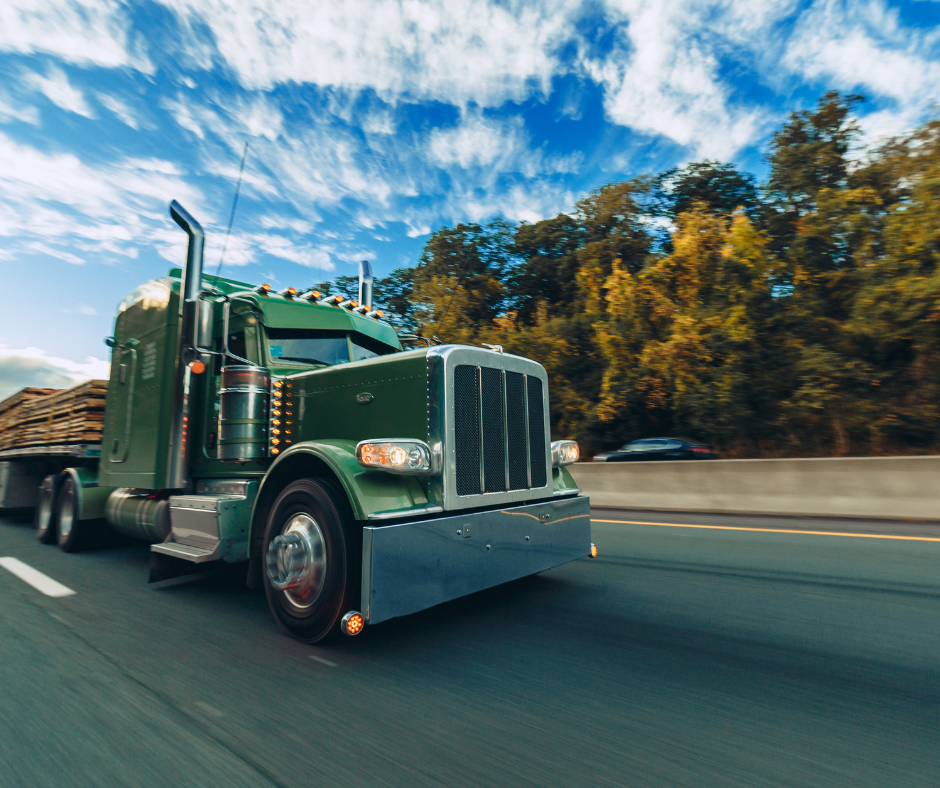Trucking Technology: What’s New With Autonomous Trucking?
- Samantha Allen & Dr. Sean Goffnett

- May 23, 2024
- 3 min read
Updated: May 24, 2024
We’ve all seen the barrage of headlines about new tech revolutionizing the trucking industry, but where are things really at right now?

The Consumer Electronic Show (CES) in Las Vegas displayed a surprising amount of trucking technology this year including hydrogen fueling, electric CMVs, autonomous trucks, and new driver-assist systems. Those behind the innovations claim the future is almost here. Let’s dive into the new equipment and tech featured this year.
Autonomous Trucking
Kodiak Robotics claims it’s ready to roll out driverless Class 8 trucks this year. Using autonomous technology developed over 5 years, it’s tested 2.5 million highway miles and 5,000 loads and plans to deploy new trucks in Texas in late 2024.
Aurora Innovation has partnered with Continental for AV system production and featured a self-driving Class 8 truck at CES. Aurora has developed a Level 4 autonomous system and plans to have 20+ AV trucks operating in Texas this year. They hope to eventually operate thousands throughout the U.S.
Gatik AI made an appearance to showcase new tire technology alongside their collection of AVs. Gatik AI has created and deployed a fleet of Class 3 to Class 7 box trucks transporting goods to distribution and fulfillment centers.
Plus, an autonomous software company, has developed a new driver-assist program with the help of Luminar’s lidar technology. The tech features assistance in merging, collisions, traffic jams, and more.
What are Autonomous Vehicle Levels?
Level 0 | No Driving Automation |
|---|---|
Level 1 | Driver Assistance |
Level 2 | Partial Driving Automation |
Level 3 | Conditional Driving Automation |
Level 4 | High Driving Automation |
Level 5 | Full Driving Automation |
Electric CMV’s
Nikola Corporation is making headway in hydrogen fuel-cell-powered electric trucks with a range of 500 miles and 20 minutes of fuel time. They plan to target short-distance fleet owners operating in the drayage, intermodal, and regional transportation space. Nikola equipment features Bosch’s hydrogen fuel cell technology to help meet decarbonization goals. Hydrogen technology offers faster charging capabilities than battery-electric vehicles. Although implementation of hydrogen tech will take extensive infrastructure and government support, it is certainly something to keep an eye on.
The Peterbilt Super Truck II and the Kenworth T680 both powered by fuel cell technology also made successful appearances. A smaller EV startup, Mullen, rolled out their new line of box trucks and cargo vans using battery technology.
What is the status of regulation?
It’s clear that AV providers are ready to start deploying at a larger scale even though the U.S. government has yet to make major decisions on federal regulation. The FMCSA is working on a proposal for safety measures such as remote assistants for monitoring, maintenance, and vehicle inspections. So far, AV tech companies have mostly been allowed to test on U.S. roadways as long as they follow regular safety standards. Several states lack AV regulation and 24 states allow AV operation, which essentially leaves driverless vehicles to operate anywhere unless it’s explicitly stated that they can’t.
Drivers have warranted concerns about the future of their industry and livelihoods as AV technology continues to grow and deploy. The Department of Transportation has attempted to settle concerns with their 2021 study suggesting that autonomous technology could lead to a 2% layoff of OTR drivers over the next five years. Only time will tell how autonomous technology will truly impact our trucking labor force as the rate of innovation continues to accelerate.
Start your trucking business off the right way! Learn more about our new book, How to Start, Drive, and Accelerate a Trucking Business.

Interested in being notified when more free resources or courses are available? Subscribe down below and you'll be the first to know!
Soshaul Logistics LLC and its affiliates do not provide tax, legal or accounting advice. This material has been prepared for informational purposes only, and is not intended to provide, and should not be relied on for, tax, legal or accounting advice. It is meant to serve as a guide and information only and Soshaul Logistics, LLC does not assume responsibility for any omissions, errors, or ambiguity contained herein. Contents may not be relied upon as a substitute for the FMCSA's published regulations. You should consult your own tax, legal and accounting advisors before engaging in any transaction or operation.




Comments